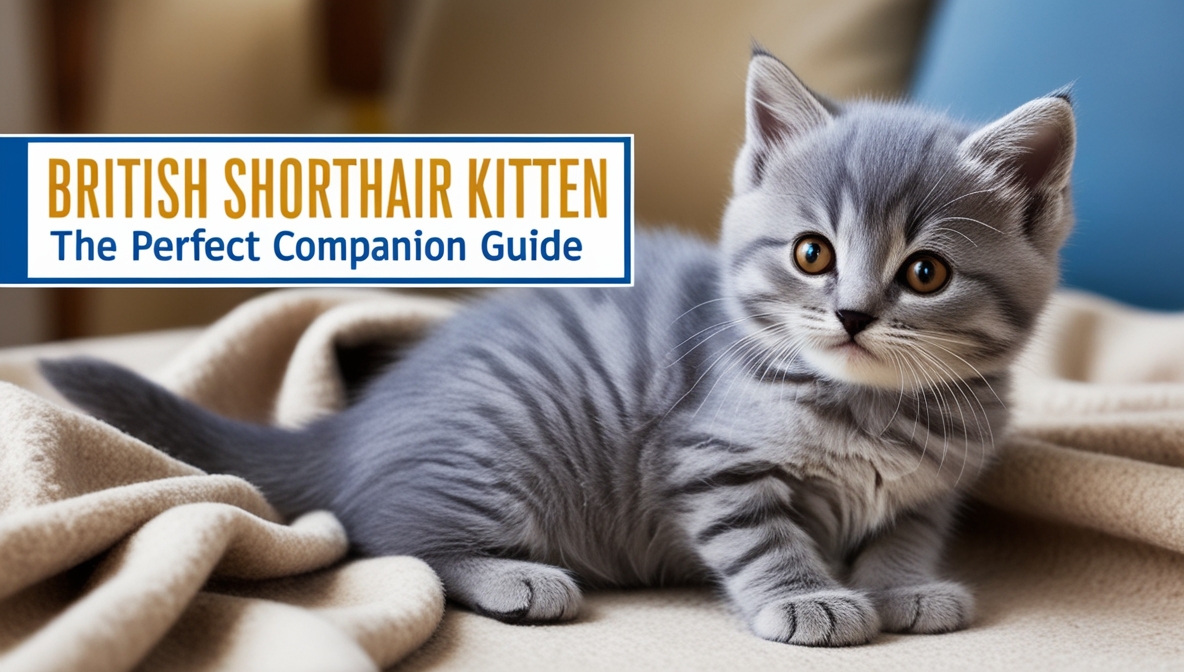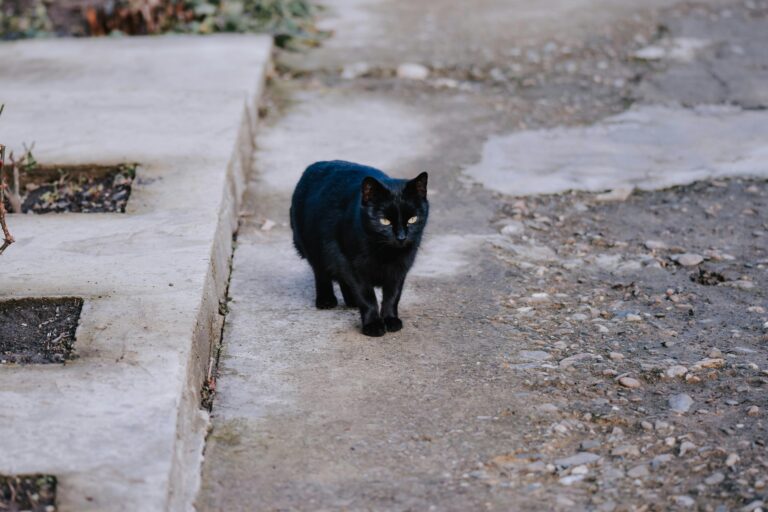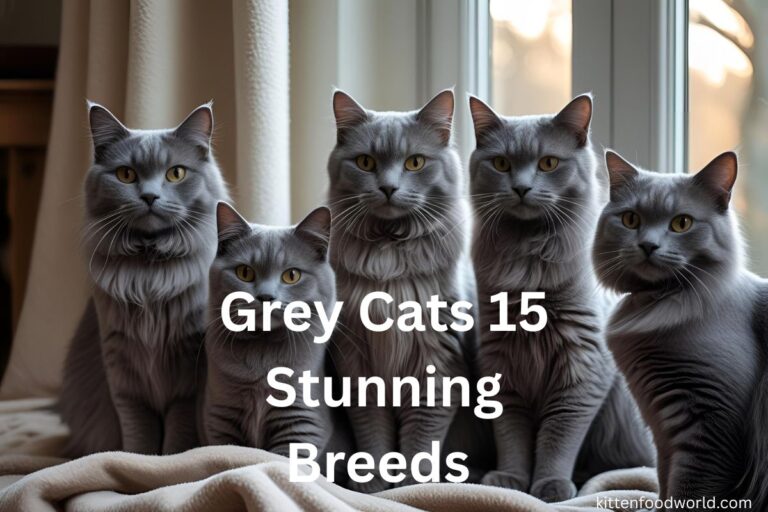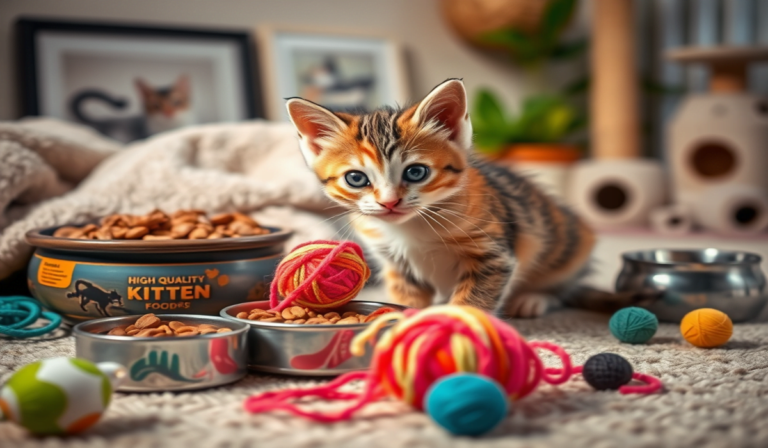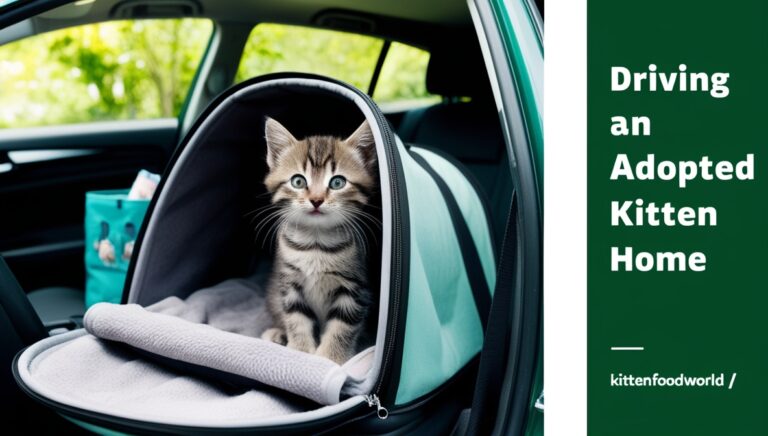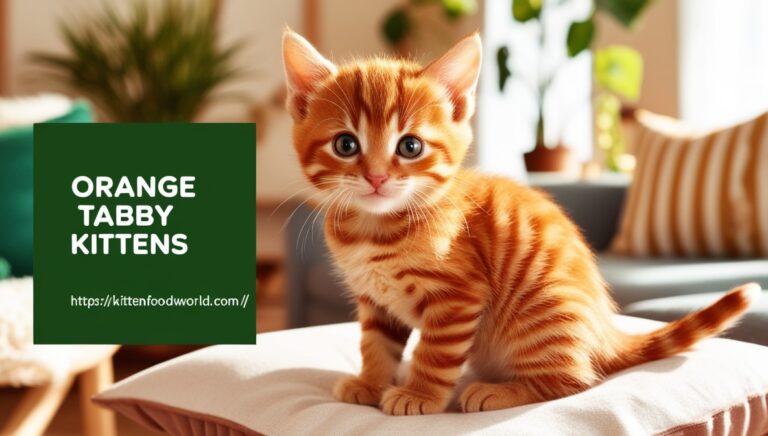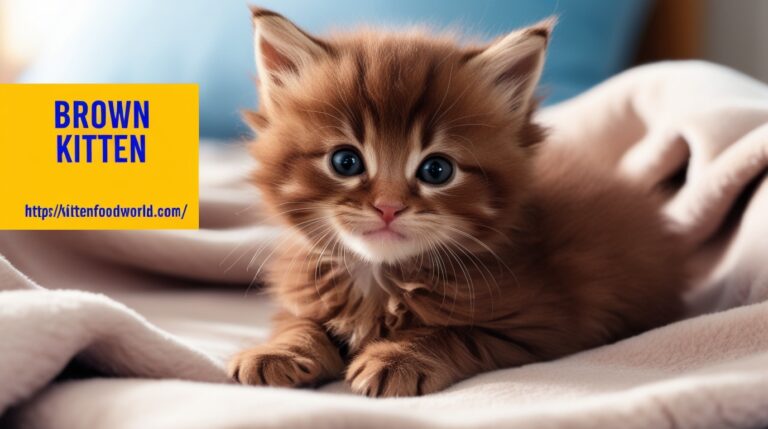British Shorthair Kitten: The Perfect Companion Guide
Table of Contents
Are you considering adding a British Shorthair kitten to your family? With their charming, plush coats, round faces, and sweet personalities, these kittens are among the most popular cat breeds.
While British Shorthairs are known for their unique traits, have you ever wondered about the coat variations in other breeds, like the Birman? Learn more in our article, Can a Birman Cat Have Short Hair?.
From understanding their unique traits to choosing the right food, we’ll cover everything you need to know to raise a happy, healthy British Shorthair kitten.
Why Choose a British Shorthair Kitten?
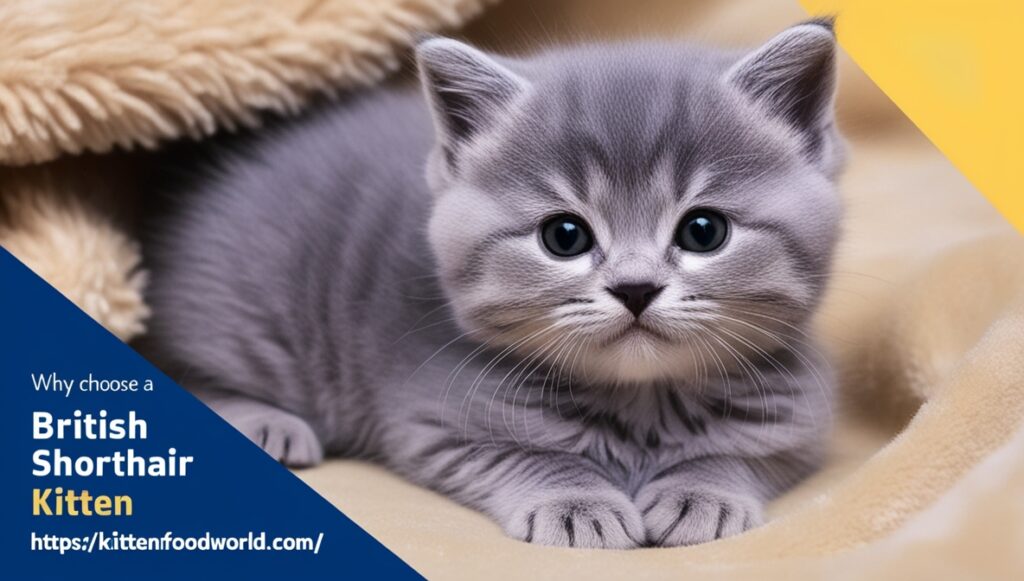
British-Shorthair-kittens are loved worldwide for their calm demeanor and affectionate nature. Originating from England, these kittens are often nicknamed “teddy bears” of the feline world due to their round faces, large eyes, and compact bodies.
Whether it’s a lilac British-Shorthair-kitten or the classic British blue cat, each one has a unique charm that captivates cat enthusiasts. British Shorthair cats are also low-maintenance, making them ideal for busy households. Their calm and relaxed nature means they aren’t as demanding as some other breeds.
So, if you’re looking for a quiet companion, the British Shorthair is an excellent choice.
Understanding the British Shorthair Personality
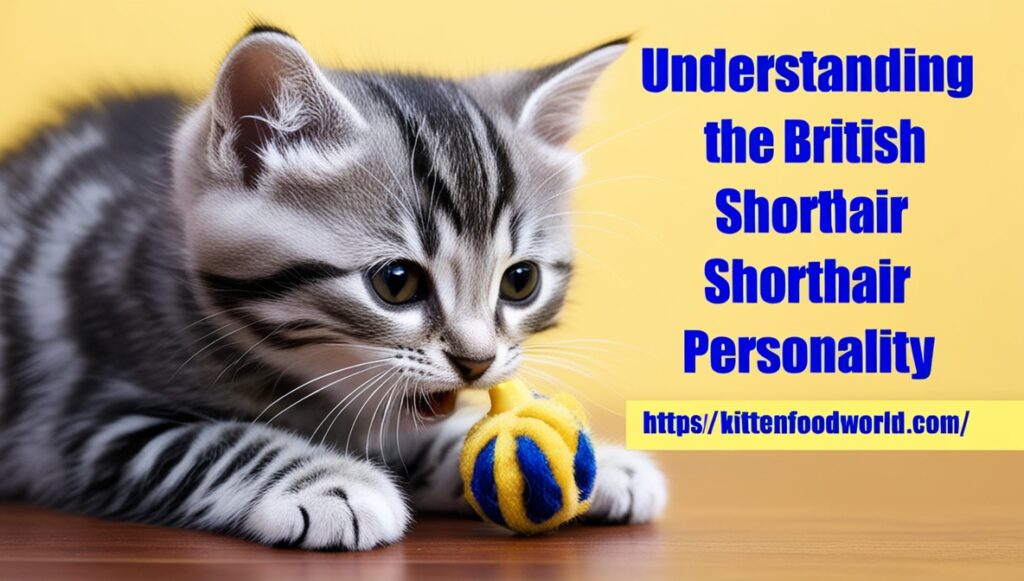
Shorthair British kittens are known for their balanced personality. They are affectionate without being overly clingy, playful without being hyperactive. These cats enjoy lounging around and observing their environment, making them great companions for both families and single owners.
The British Shorthair’s calm nature makes them suitable for households with other pets. They’re social but not overly dependent, so they’re comfortable entertaining themselves. Plus, as they grow into British Shorthair adults, they retain their affectionate nature, making them a lifelong friend.
Unique Colors and Types: British Blue and Lilac British Shorthairs
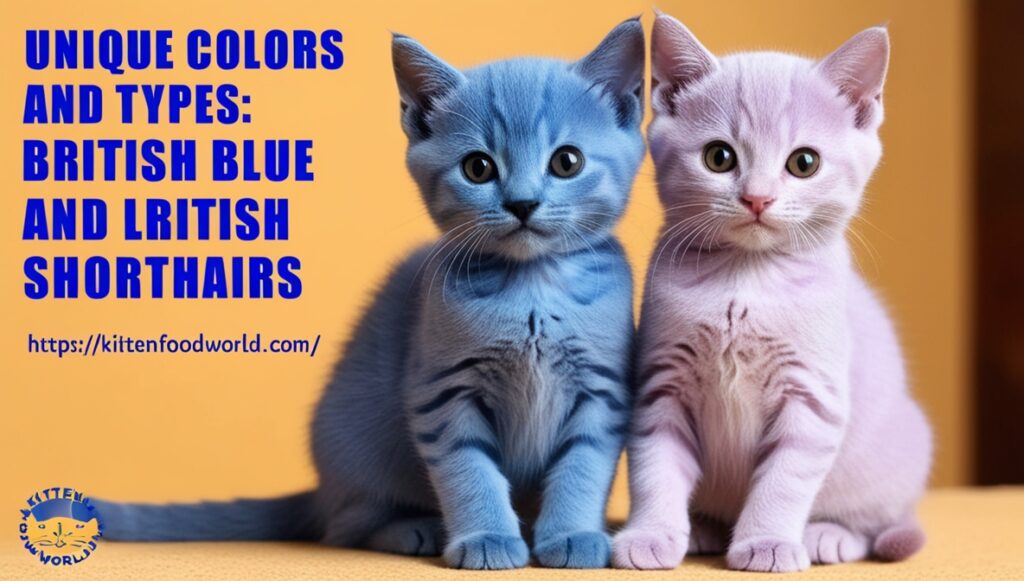
The British Shorthair breed offers a variety of stunning colors, each with its charm. The most iconic is the British Blue Cat with a solid, dense blue-gray coat. This color is so popular that the British Shorthair is sometimes affectionately called the “British Blue.”
Another unique variety is the Lilac Shorthair British kitten, which has a lighter, softer shade of gray with a touch of pinkish lavender. These kittens are particularly rare and highly sought after by cat lovers.
British Shorthair Kitten Nutrition: What They Need to Thrive
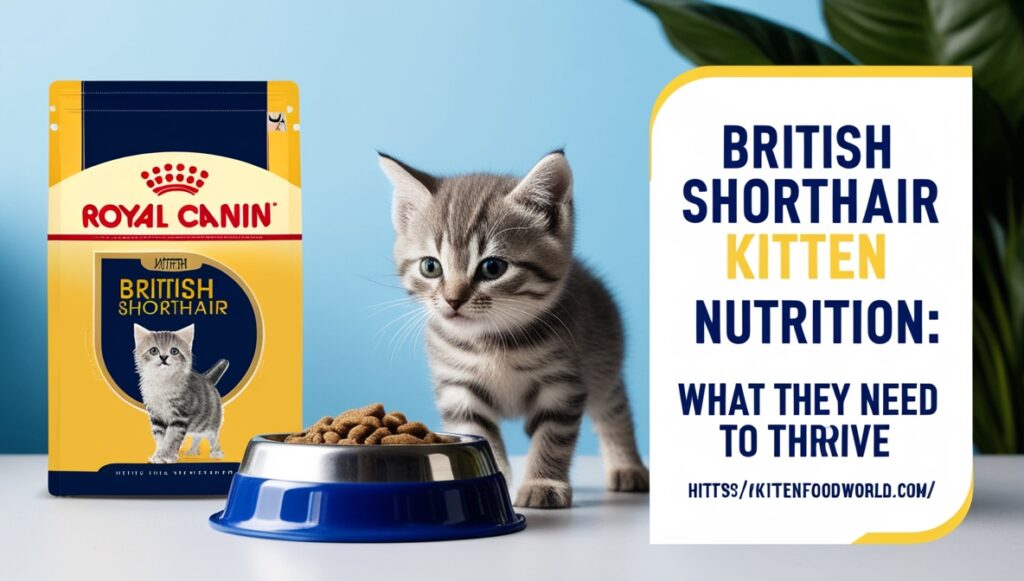
Feeding your Shorthair British kitten a balanced diet is crucial for its growth and development. These kittens require a diet high in protein and healthy fats to support their sturdy body structure.
When choosing food, make sure it’s specifically formulated for kittens to meet their nutritional needs.Royal Canin Shorthair British Kitten food is a popular choice among pet owners.
This formula is designed to support the unique build of Shorthair British kittens, with ingredients that help promote strong bones and muscle growth. Additionally, Royal Canin’s kibble shape is adapted for the kitten’s strong jaw, making it easy for them to chew and digest.
Benefits of Royal Canin British Shorthair Kitten Food
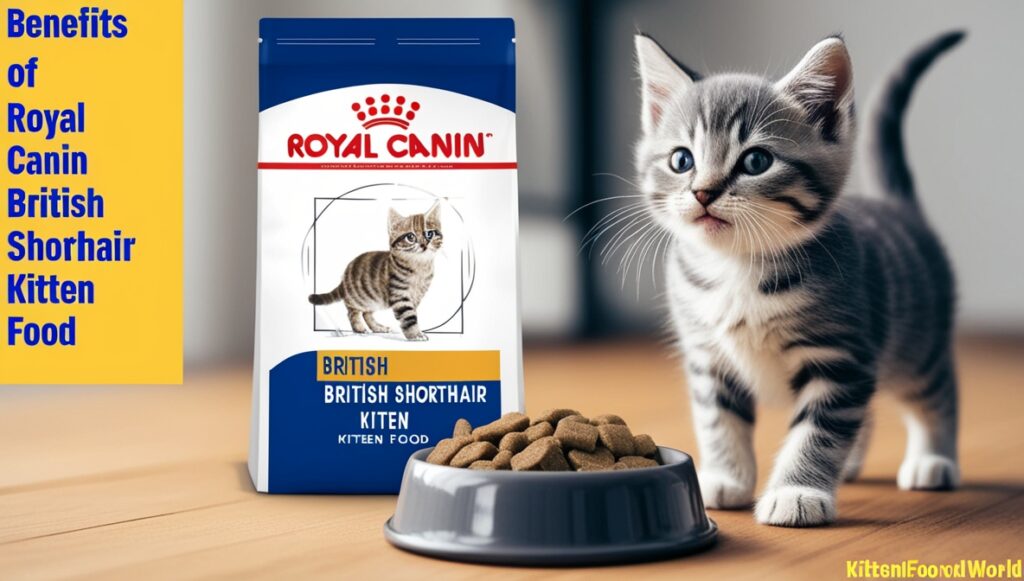
Royal Canin’s BSk food is crafted with this specific breed in mind, which makes it an excellent option for owners. Available in different sizes, from the Royal Canin Shorthair British Kitten 2kg to the Royal Canin British Kitten Shorthair 10kg, it’s convenient and tailored for different stages of growth.
Royal Canin also offers wet food options, which many British Shorthairs enjoy as a tasty treat or meal topper. This variety ensures that your kitten is hydrated and gets the right amount of moisture in their diet.
The Royal Canin British kitten Shorthair review frequently highlights positive feedback from owners who see improvements in their kittens’ coats, energy, and overall health.
Other Top Food Brands for British Shorthair Kittens

While Royal Canin is a fantastic choice, there are other premium brands to consider. Orijen is known for its high-protein formulas made with fresh, regional ingredients.
Orijen’s recipes are biologically appropriate, meaning they’re crafted to mimic a cat’s natural diet, which is high in animal protein and low in carbohydrates. Another choice is Pet Food Expert, which provides insight into specialized kitten foods that suit Shorthair British kittens.
These brands prioritize high-quality ingredients without fillers, helping your kitten grow into a robust, healthy adult cat.
Essential Care Tips for Your British Shorthair Kitten
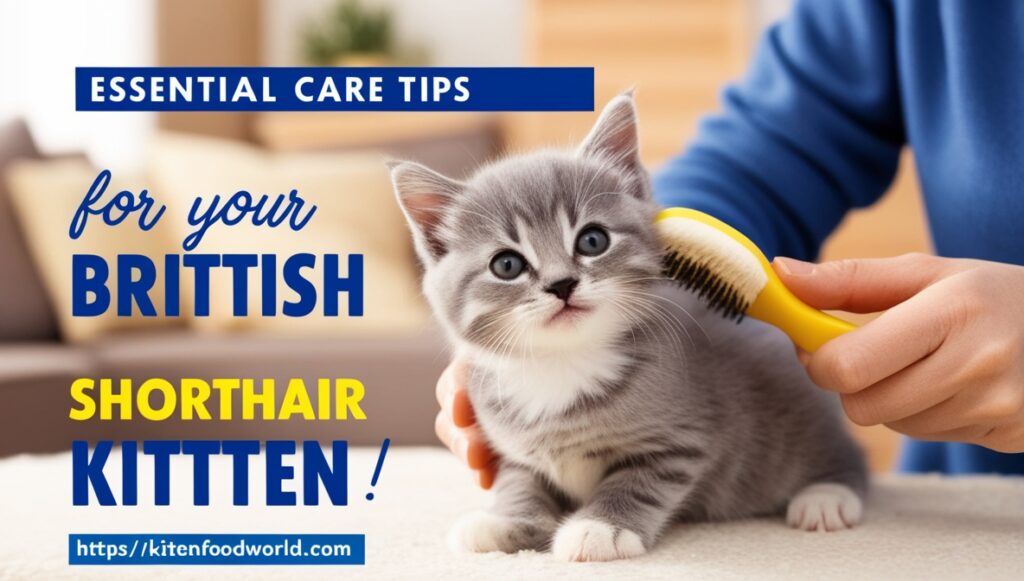
Caring for a Shorthair British kitten is relatively straightforward, but there are a few essentials to keep in mind. Regular grooming is recommended, as their dense fur can shed. Brushing once a week will keep their coat looking plush and help reduce shedding around your home.
Shorthair British kittens are prone to obesity as they mature, so monitor their weight and provide a balanced diet. With their calm demeanor, they may not be as active as other breeds, so make sure they have toys and activities to keep them engaged.
Health and Wellness for British Shorthair Cats
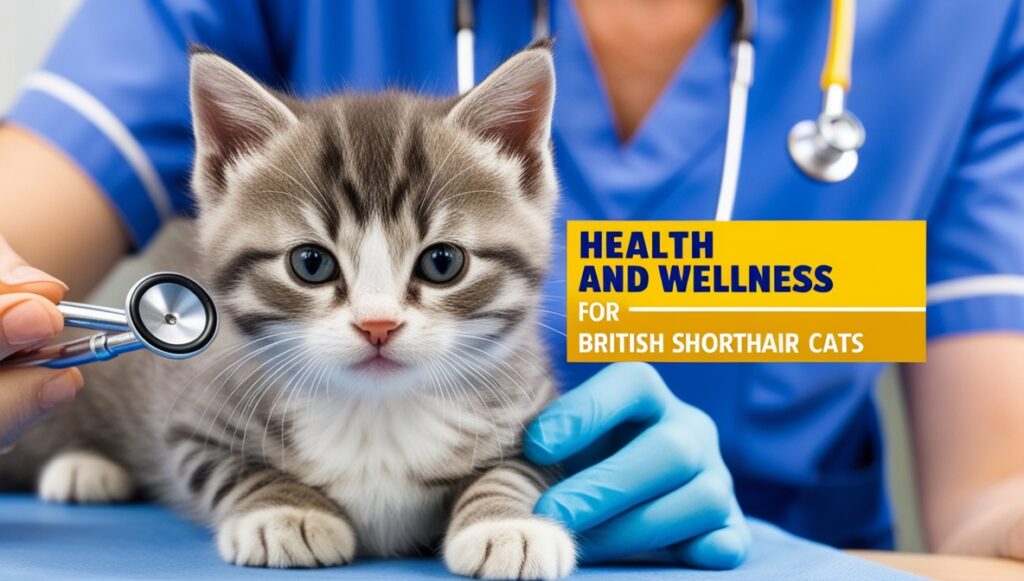
British Shorthairs are generally healthy cats, but like any breed, they have some specific health considerations. They are prone to obesity, so maintaining a balanced diet with portion control is essential. Regular vet check-ups are recommended, especially as they age, to catch any potential issues early.
In addition to obesity, British Shorthairs can also experience dental problems. Look for kibble formulated to support dental health, such as Royal Canin British Shorthair Adult. These specially designed kibbles can help reduce plaque and tartar buildup, keeping your cat’s teeth clean and healthy.
Finding British Short-hair Kittens for Sale
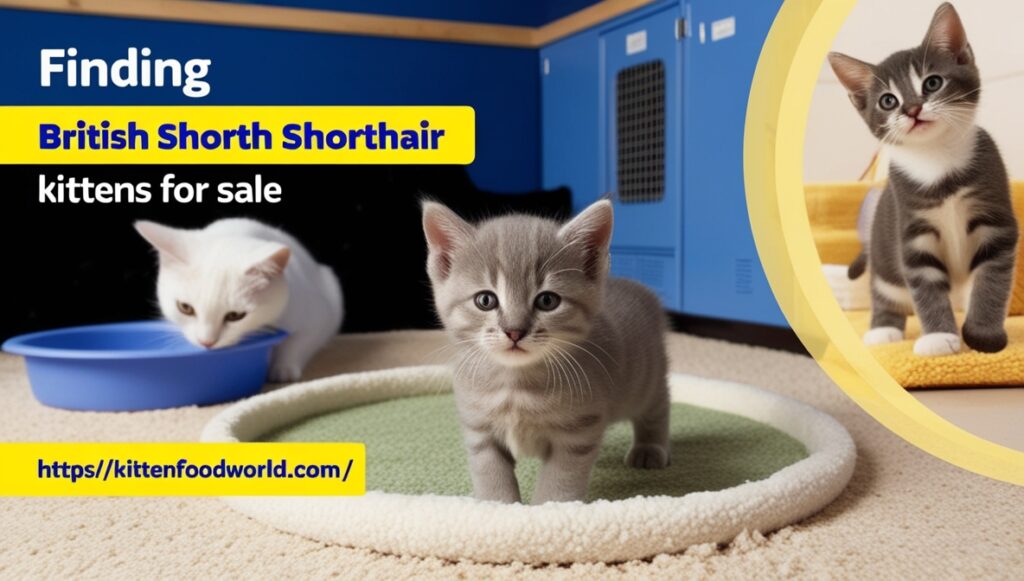
If you’re set on adopting a British Shorthair, look for reputable breeders or registered shelters. Many breeders specialize in British Shorthairs, and they can guide you on the best care practices.
Look for recommendations from other owners and review breeder certifications to ensure you’re getting a healthy kitten. Alternatively, check local shelters or breed-specific rescues.
While it’s rarer to find a Shorthair British kitten in a shelter, you may get lucky. Adopting from a shelter not only gives a cat a home but also supports animal welfare.
British-Short-hair Kitten: Growing Into Adulthood
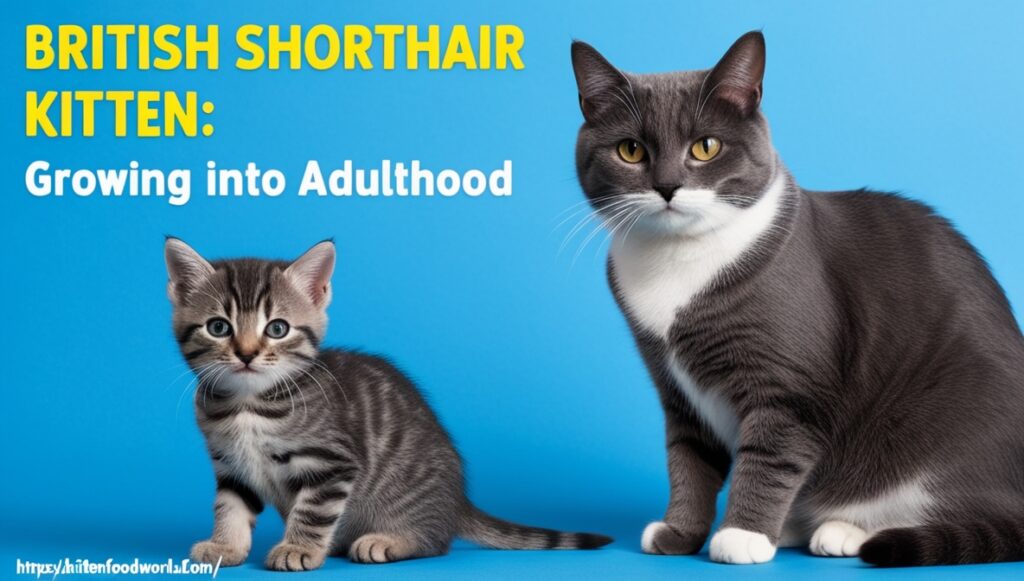
British-Shorthair-kittens take around three to five years to reach full maturity, which is slower than most other cat breeds. During this time, they develop their muscular frame and dense coat, so high-quality nutrition is essential.
Regular playtime, along with mental stimulation, will keep them healthy and content as they grow.
As they mature, British Shorthairs tend to mellow even more, but they still enjoy an occasional play session. You’ll find that your British Shorthair adult retains the affection and loyalty that makes this breed so beloved.
Final Thoughts: British Shorthair Cats Are Worth the Wait
Bringing home a Shorthair British kitten is the beginning of a rewarding journey. These cats offer companionship, love, and a unique personality that makes them unforgettable.
From choosing the right Royal Canin kitten food to ensuring a balanced lifestyle, you’re setting up your kitten for a lifetime of happiness.
So, whether you’re drawn to the British blue or captivated by a brown British Shorthair cat, rest assured that with the right care and love, your Shorthair British kitten will grow into a cherished member of your family.
FAQs
What is a British Short hair kitten?
A BSK is a domestic cat breed known for its plush, dense coat, rounded face, and calm, friendly temperament. It is one of the oldest and most popular cat breeds, originating from the United Kingdom.
What is the average size of a British Short-hair kitten?
A British Short-hair kitten typically weighs between 2 to 4 pounds at 12 weeks old. They grow steadily, eventually reaching an adult weight of 7 to 17 pounds depending on their gender and genetics.
What is the typical lifespan of a British Shorthair?
British Shorthairs are a healthy and robust breed with a typical lifespan of 12 to 20 years, provided they receive proper care, a balanced diet, and regular veterinary checkups.
What is the coat texture of a British Short-hair kitten?
The coat of a British Short-hair kitten is soft, dense, and plush, resembling a teddy bear’s fur. The texture becomes even thicker and plusher as they mature.
What colors do British Short-hair kittens come in?
British Short-hair kittens come in a variety of colors, including blue (most popular), black, white, cream, lilac, and bi-color patterns. Some may also have tabby or tortoiseshell markings.
Are British Short-hair kittens good for families?
Yes, British Short-hair kittens are excellent for families. They are known for their calm, affectionate, and patient nature, making them great companions for both adults and children.
Do British Short-hair kittens get along with other pets?
British Short-hair kittens are generally sociable and can get along well with other cats and dogs if introduced properly. Their laid-back nature makes them adaptable to multi-pet households.
How much exercise does a British Short-hair kitten need?
Shorthair British kittens enjoy moderate playtime but are not overly active. Providing toys, scratching posts, and short play sessions will help keep them entertained and healthy.
Do British Short-hair kittens require special grooming?
British Shorthairs are low-maintenance cats, but their dense coat benefits from weekly brushing to reduce shedding and prevent matting. During shedding seasons, more frequent grooming may be needed.
What is the diet for a British-Short-hair kitten?
BSks require a high-quality diet rich in protein to support their growth. Consult a veterinarian for specific dietary recommendations based on their age and activity level.
Are British-Short-hair kittens vocal?
British Shorthairs are generally quiet cats. They may meow occasionally but are not overly vocal, which makes them ideal for quieter households.
Do British Shorthair kittens adapt well to apartment living?
Yes, BSKs adapt well to apartment living. Their calm nature and moderate activity level make them a good choice for indoor-only environments.
How do British Shorthair kittens behave with strangers?
BSKs are typically friendly but can be reserved around strangers. They tend to warm up gradually once they feel comfortable in the environment.
What health issues are common in British Shorthair kittens?
British Shorthairs are generally healthy, but they can be prone to certain conditions such as hypertrophic cardiomyopathy (HCM) and obesity. Regular vet checkups and a balanced diet help maintain their health.
How much do British Shorthair kittens cost?
The price of a British-Shorthair-kitten varies depending on the breeder, pedigree, and location. On average, they can cost between $800 to $2,500.
When can you adopt a British-Shorthair-kitten?
Most breeders allow adoption of B Short-hair kittens when they are at least 12 weeks old. By this age, they are weaned, socialized, and ready for a new home.
Do British-Short-hair kittens enjoy being held?
British Shorthairs enjoy affection but are not overly clingy. While they may tolerate being held for short periods, they prefer to sit beside their owners rather than being carried.
How can you socialize a British-Short-hair kitten?
Socializing a British Shorthair kitten involves exposing them to various people, sounds, and experiences in a positive way. Gentle handling, playtime, and patience help build their confidence.
Are British-Short-hair kittens intelligent?
Yes, British Shorthairs are intelligent and curious. They enjoy puzzle toys and interactive play that challenges their mental abilities.
What is the personality of a British-Short-hair kitten?
British-Short-hair kittens are calm, affectionate, and independent. They enjoy companionship but are also content entertaining themselves, making them a well-rounded and adaptable pet.

